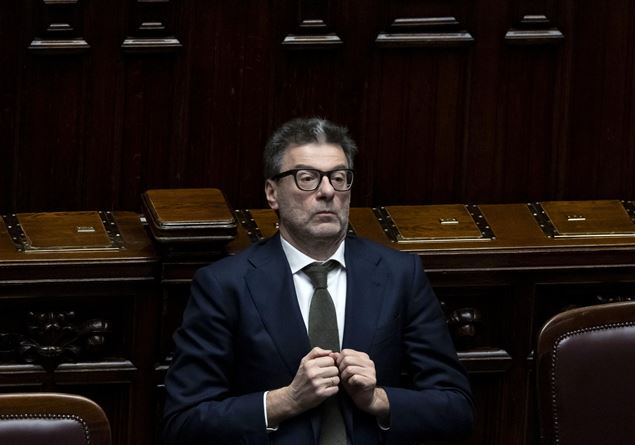
The 2025 economic maneuver presents itself with an already familiar face: that of austerity. An announced return, perhaps inevitable, but no less bitter for this. The ones who pay the price, as always, are the Municipalities, the weak link in a chain that the government is trying to tighten to adapt to European rules. Rules that look at the budget, not always at the lives of citizens.
Cuts amounting to eight billion euros until 2037. A figure that is not just a number, but a sentence. Local administrations will see a reduction in state transfers, sacrificing housing policies, urban regeneration and public works. And this in a country that is already struggling to maintain the decorum of its cities. Mayors will have to choose as in “Sophie’s Choice”: increase local taxes or reduce essential services. It doesn’t take an economist to understand that both solutions will come with a heavy price to pay, and that price will always end up on the shoulders of citizens.
Current spending, i.e. the ordinary functioning of local authorities, will be cut by over 400 million in 2025 alone. A figure that will formally remain in municipal coffers, but only to finance future investments or plug budget holes. This system known as fiscal compact, as the magistrates of the Court of Auditors have pointed out, will aggravate inequalities between territories. Virtuous municipalities will be able to invest, those in difficulty will be forced to survive. And who will pay for it? Always the same ones: citizens of the weakest areas, not only in the South.
As if that wasn’t enough, the government is threatening to partially block public sector hiring. From next year, administrations could replace only 75 percent of outgoing staff. A measure which, according to ANCI, risks paralyzing the Municipalities, preventing them from hiring staff even where there would be economic space. The problem has a dramatic impact on the school, among teachers and administrative staff. And if there is one sector in which a country cannot afford to save, it is education.
The Court of Auditors and Bank of Italy have criticized the linear spending review, a logic that cuts a fixed percentage of spending for all ministries without distinction. And while everything else tightens their belts, only defense and territorial security are saved.
The municipal surcharge, already one of the most unpopular taxes, risks rising further, worsening a fiscal pressure that citizens find increasingly less bearable. And it’s not just a matter of numbers. When municipalities increase taxes, trust in the system decreases. And when they cut services, it is the very meaning of the State that breaks down.
This economic maneuver which will soon be transformed into a budget law, with its severe face, seems to ignore a lesson that history should have taught us: a country does not grow with cuts, but with investments. You don’t save yourself by cutting the future, but by building it. And if it is true that European rules must be respected, it is equally true that every cut is a wound, and every wound risks leaving a scar.
The Italy of the Municipalities, which has been the backbone of the country for centuries, once again finds itself paying the bill. A bill that translates into fewer resources, fewer services and, above all, less hope. In the meantime, the social spending of the Municipalities continues to grow, driven by the increase in new poverty, thanks to aging, the birth rate decline, the fragility of family networks and the corrosion of purchasing power. Nurseries, public transport, libraries, museum activities, school canteens, after-school activities, sports centres, home care, retirement homes, home care, social housing, swimming pools: everything is increasing. Even if municipal taxes are progressive, they still end up having a heavy impact on the poorest families. An injustice that, in the long run, will not hold, fueling further social inequalities. So, what will be the final price of this precarious balance? And, above all, who will be able to support it?
in the photo, the Minister of Economy Giancarlo Giorgetti.







